
Apart from the Tours of Yorkshire and Britain we only have one UCI race in the UK, ‘The Rutland CiCLE Classic,’ an event which anticipated the current ‘gravel craze’ by a decade and more. We thought it would be interesting to talk to the man behind the race, Colin Clews.
Here’s what he had to say to VeloVeritas, recently.
How did the race come to be, Colin?
“In 2003, following the death of my first wife, I took the opportunity of early retirement from a senior management post in the NHS.
“With more time on my hands and as a UCI International Commissaire since 1991, I was able to take on more international duties on their behalf and this took me to races across the World, but primarily in Europe where the sport is so strong.
“I took a keen interest in the organisational methods employed at different races; how the organisers achieved good quality events and what made them look so much better than the traditional events that we had in Britain, which were so often held in out of the way places, away from centres of population.
“Having time to also ride my bike around the quiet local roads/lanes in my area and long having been a fan of top European one day Classics such as ‘Paris-Roubaix‘ and ‘De Ronde van Vlaanderen‘, I began to muse over creating a race over those same roads in the character of those great races.
“I could visualise the roads I wished to use and with the lack of ‘cobbles’ even looked hard to find the odd rough track that could be incorporated into a race route to give the added challenge.
“Having found a potential route in ‘the sticks’, to achieve the accessibility to the race for spectators I needed to look for a start and finish point and with the local towns of Oakham, Rutland and Melton Mowbray having a natural connection, although ten miles apart, the idea was sown to have a place to place race between the two centres of population, and so the idea of the ‘Rutland-Melton’ was born…”
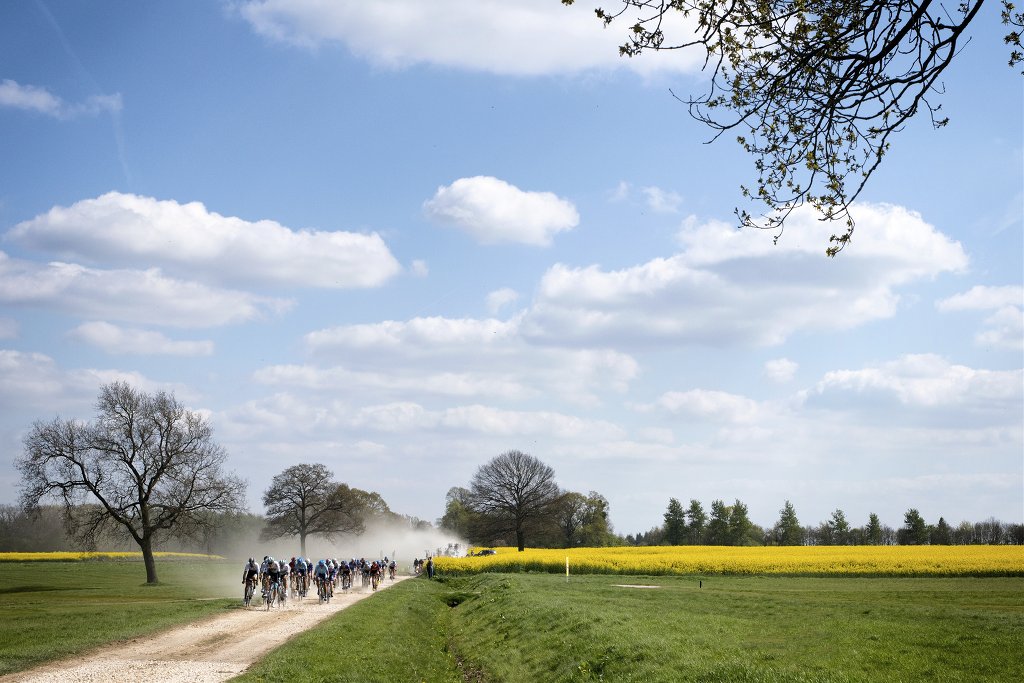
How did you get things started?
“I approached the two councils and they were enthusiastic at the idea but they made it clear that they had no money to support.
“I then went out to the local press and an article they published brought two responses, one from someone who said if I needed help with police let him know.
“In answer to my question who was he, I was told ‘the desk Sergeant at Oakham Police’! He was also a cycling enthusiast in Owston by the name of Dick Harvey who said he was prepared to pay some sponsorship if I took the race through his village.
“As this was exactly part of my planned route, it was a ‘marriage’ made in heaven.”
When was that and how many editions since?
“The first edition was in 2005. The race went ahead with just over £1500 sponsorship available and with me ‘footing’ the rest of the total £4500 budget.
“Although a totally new race, BC took a risk by allowing the race in its first year into the then Premier Calendar annual race series.
“That event was won by Scott Gamble (Ashfield RC but riding for East Mids Region) and was an instant hit.
“The pictures from the race show how different it was to anything that already existed.”
“Long before gravel racing was thought of we were doing it first in Rutland and Melton!
“Following encouragement from Dave Brailsford who came to the event the following year, I went ahead and placed the event onto the UCI international Calendar for 2007.
“That year we needed a budget of around £12,000 which I didn’t have, until a last minute intervention by the then East Midlands Development agency who stepped in as title sponsor for that year and remained so until their demise in 2010.
“In April it will be our 16th edition.”
What were your thoughts after edition one?
“We were blown away by the response from riders, spectators and sponsors.
“All wanted more, especially the off-road sectors!
“So I began looking for more… and I found them.
“In the first year we had six off road sectors, in 2020 we will have 12.”
Your favourite edition thus far?
“The 2012 edition. It was a total nightmare for everyone but would never have missed what we went through.
“That year, 24 hours before the race, rain ‘of biblical proportions’ began to fall in the local area and did not stop until 24 hours after the race finished.
“The 152 riders left the start in this torrential race which battered all our hard work in placing banners and barriers around the course.
“Mid-race I was informed by the police that various roads we were supposed to use were impassable by floods and as the race went on I had to re-route three times to get the race to the finish line where 22 hardly souls eventually made it.
“Alex Blain (Endura RT) won the race that year.
“Cycling Weekly’s’ front page that week read, “The day the CiCLE Classic came of age and showed its true character as a real Spring Classic”.”
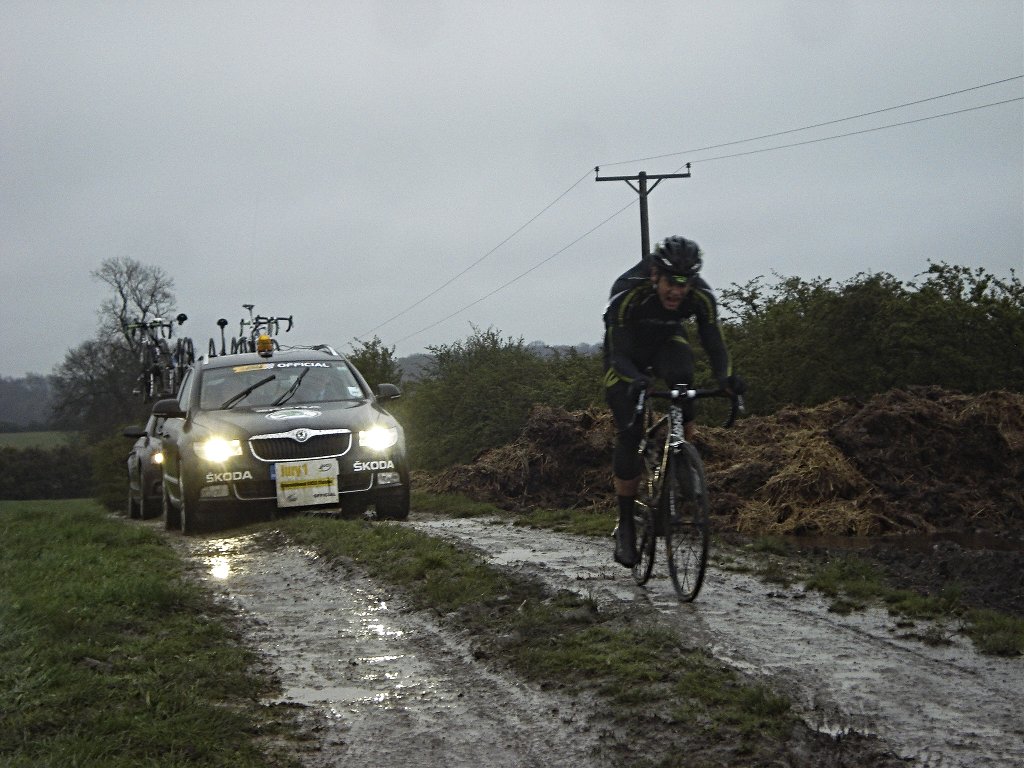
What’s your “day job” and what sort of time commitment does the race take?
“I retired from a normal job in 2003, but until this year and now that I have reached official UCI retirement age of 70, I have worked extensively as a UCI international Commissaire, Commissaire Tutor, and Doping Control Officer at events across the World.
“In 2014 I was the UCI Technical Delegate to the Glasgow Commonwealth Games.
“That’s kept me busy, with the CiCLE Classic(s) taking up perhaps the other six months of the year!
“As a matter of interest in 2014 we introduced a Junior Men’s version of the race and since 2016 we have also introduced a Women’s version of the race.
“In 2019 I was also instrumental in franchising the CiCLE name to the neighbouring local Authority who staged their own very successful ‘Bourne CiCLE Festival weekend’ under my guidance.”
What size of a team of officials do you have on race day?
“Other members of the team begin to come on board carrying out various preparation tasks from around three weeks prior to each race.
“On race day we have nearly 200 officials, volunteer marshals and assorted personnel to make everything run smoothly.”
What‘s police cooperation like and what costs are involved with them?
“Absolutely excellent from year one.
“The officers of Leicestershire Constabulary I cannot praise enough; always totally professional, always courteous and helpful, without their cooperation and collaboration we could not have achieved what we do.
“Costs differ from year to year based upon the nationally laid down criteria that exists for the recharge of Police costs, dependent upon what manpower is used.”
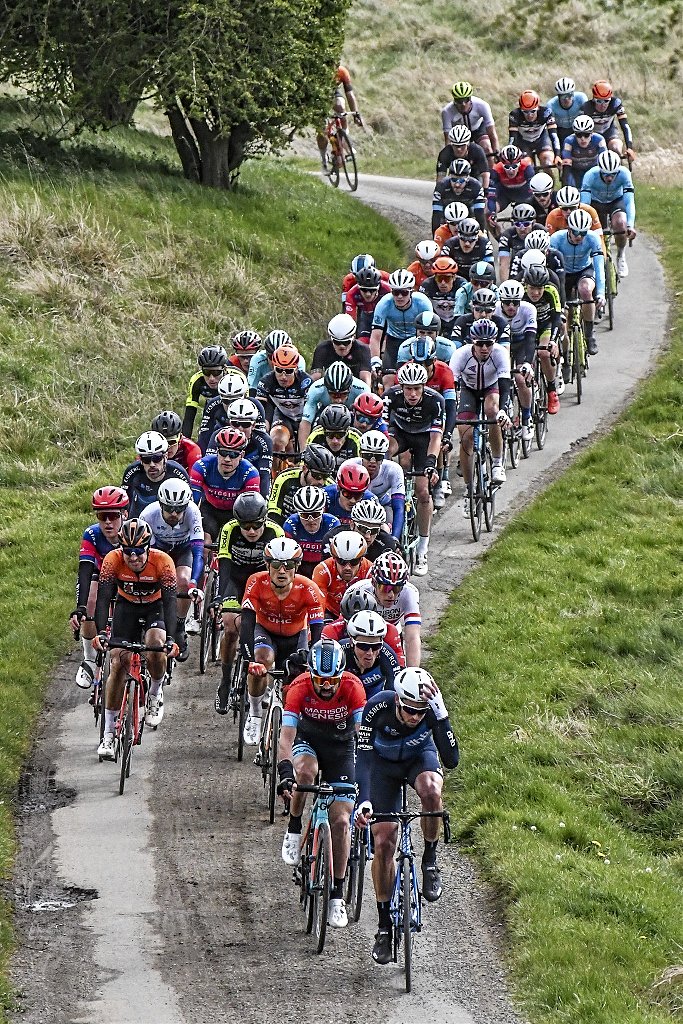
How about the local authorities?
“Both Rutland County Council and Melton Borough Council have provided strong support in principle from the outset, from which they were equally honest that as two of the most ‘cash strapped’ local authorities in Britain their further contribution was unlikely to be financial at any stage.
“Leicestershire Highways were more hesitant initially, but the first few editions produced very few of the expected complaints they envisaged, have slowly come on board and we now have excellent cooperation with them as well.”
Any “geroff my land!” type problems?
“There will always be someone in a village or town or passing through that objects to being held up for 10 minutes before they can go about their business, many of whom declare a lack of knowledge of the race despite over 100 advance warning signs posted two weeks prior to each race day.
“But in the main most are very supportive and several of the rough tracks used are on private land which the owners have willingly offered to me to assist with the race.
“This occurs at Owston where the race goes through a commercial farm yard and track owned by Dick Harvey, and also the grounds of Stapleford Park owned and operated by Lord Gretton.
“Owston village is normally a small hamlet where 79 people live.
“On race day it’s transformed into the ‘heart of the race’ with over 1000 visitors with the villagers providing all the marshals at each junction.
“The list of residents willing to help out as marshals includes people from all walks of life, including a High Court Judge.
“The villagers reward; all the receipts from both the BBQ sales and the parking charges, which allows them to run the village hall for 12 months!”
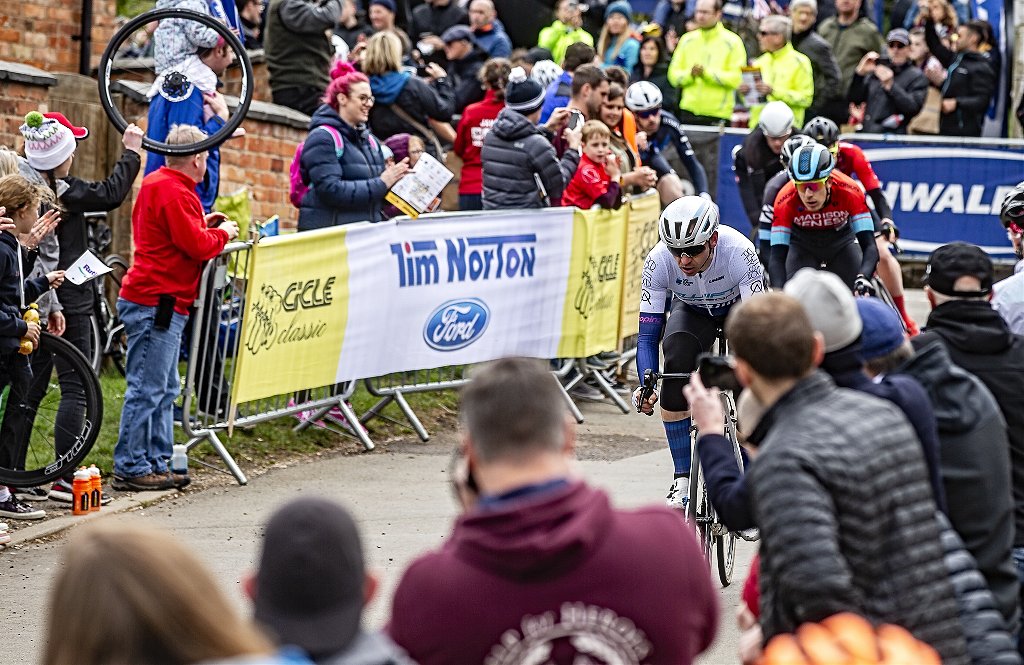
What does the race cost to run?
“In its current format between £50 and £60,000 per year. The Women’s race around £30,000.”
To be a UCI race, what hoops do you have to jump through?
“There are no real hoops.
“Simply, the race has to be run to the standards laid down by the UCI to whom a registration fee is paid, and you have to be willing to put in the work to get foreign teams to travel to achieve this.
“It’s actually easier than people think.”
Do you get good contributions from sponsors?
“Several of our sponsors such as our vehicle sponsor, Tim Norton (Ford) of Oakham have been with us since 2005.
“Our current two title sponsors, the Giant Store (Rutland Water) and Schwalbe UK have been with us since 2013 who are very supportive.
“With smaller contributions from all sorts of smaller sponsors we manage to make up the required budget each year.
“We always however, as every other cycle race organiser will tell you, have an annual fight to secure the money we need to sustain the race.
“Sponsorship is never easy.
“The Women’s race however is sponsored totally by a private individual, Peter Stanton, who as a long time supporter of Women’s cycling does so simply out of love for the sport.”
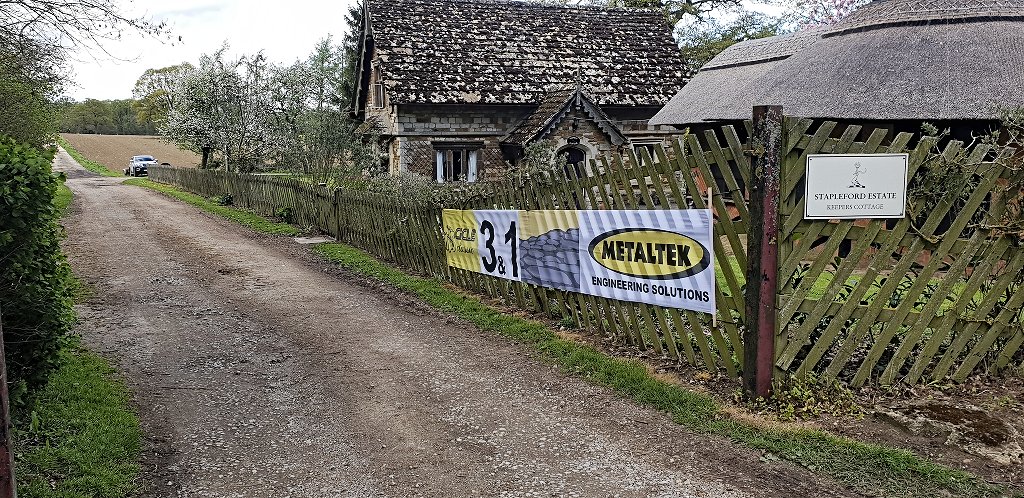
Is the race always over-subscribed – how do you select your field?
“Yes, it is. On average, we receive 350-plus total entries for the race of which we can only take a maximum 176 to comply with UCI regulations.
“Entries to the international race have to be by team only, no individuals.
“All the prominent teams are given the maximum six riders in their start line up, but we do try and provide as wide a level of access to smaller British clubs as we can, we then take reduce this to four riders per team for the remainder.
“On average 35 teams are listed on the start sheet, with selection largely based on previous performances, but we do introduce other criteria to support younger riders.”
Have the parcours changed over the years?
“Yes, each year we try to ‘tweak’ the course some more. Six years ago we introduced a 15 kilometre finishing circuit through Melton Town Centre.
“Two years ago we added two passages of Stapleford Park to this circuit which gave us two further special sectors.
“In 2019 we brought the race up to my own village of Wymondham where we did four small laps before returning to Oakham.
“This was done to begin creating an alternative/additional spectator pointy similar to Owston to the route.
“And this year we are adding a detour to the latter, which will add another special sector (12) early in the race.”
Are there things you’d like to do if you had the funding?
“Yes certainly – a race organiser can never have too much money!
“I would seek to improve equipment and infrastructure to make the race look even more like a professional cycle race than we do currently.
“Each year we invest in new banners etc. and we are now able to place banners on every major junction of the 200 kilometres course, not an easy task, but we make the course look like it is featured in a cycle race, and not just part of the countryside.
“Equally all the sectors are identified by banners to make the course user and spectator friendly.”
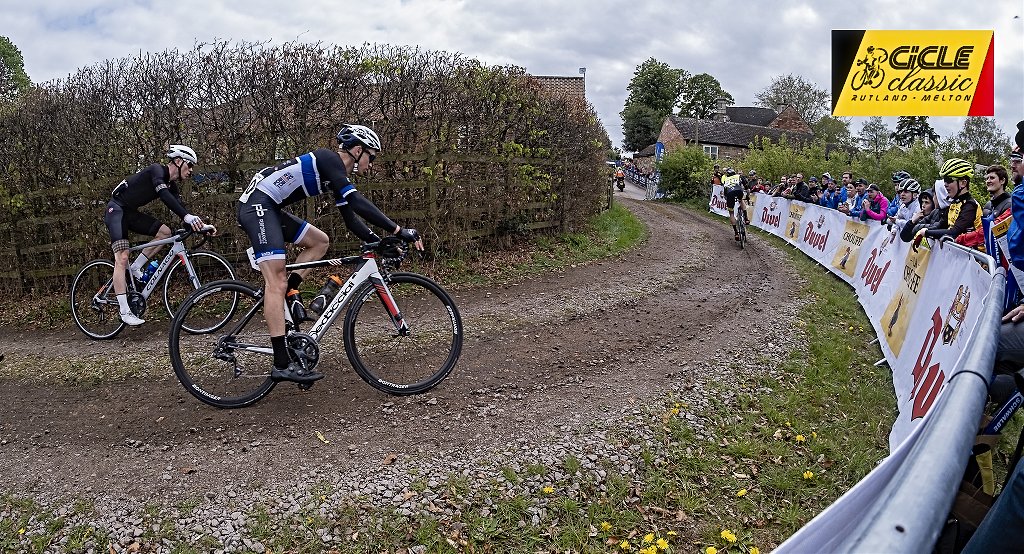
What do you think the fascination is with the race?
“As well as putting on a well presented and professionally looking cycle race, we offer something completely different to most other races, and without doubt utterly unique within the UK.
“Knowing what REAL races look like, we say we are a ‘Spring Classic’ in the mould of Paris-Roubaix and Ronde van Vlaanderen, and we create a spectacle to match that boast.
“It’s hard work, but we have a great team of sponsors and helpers, and we ALL share in the satisfaction of a job well done, enjoyed by all those attending.”



